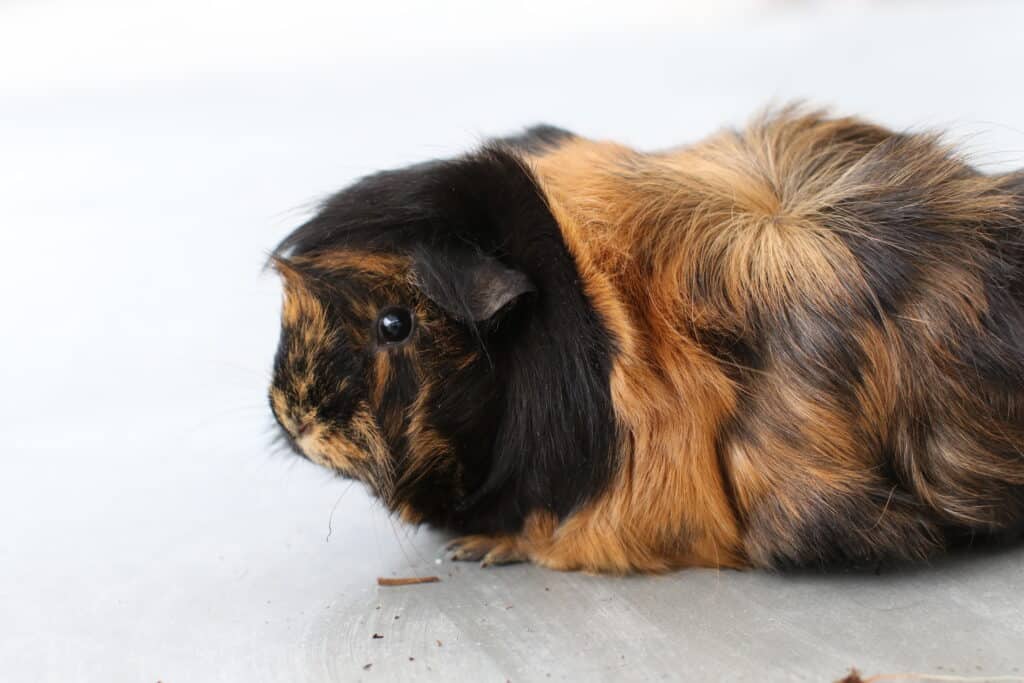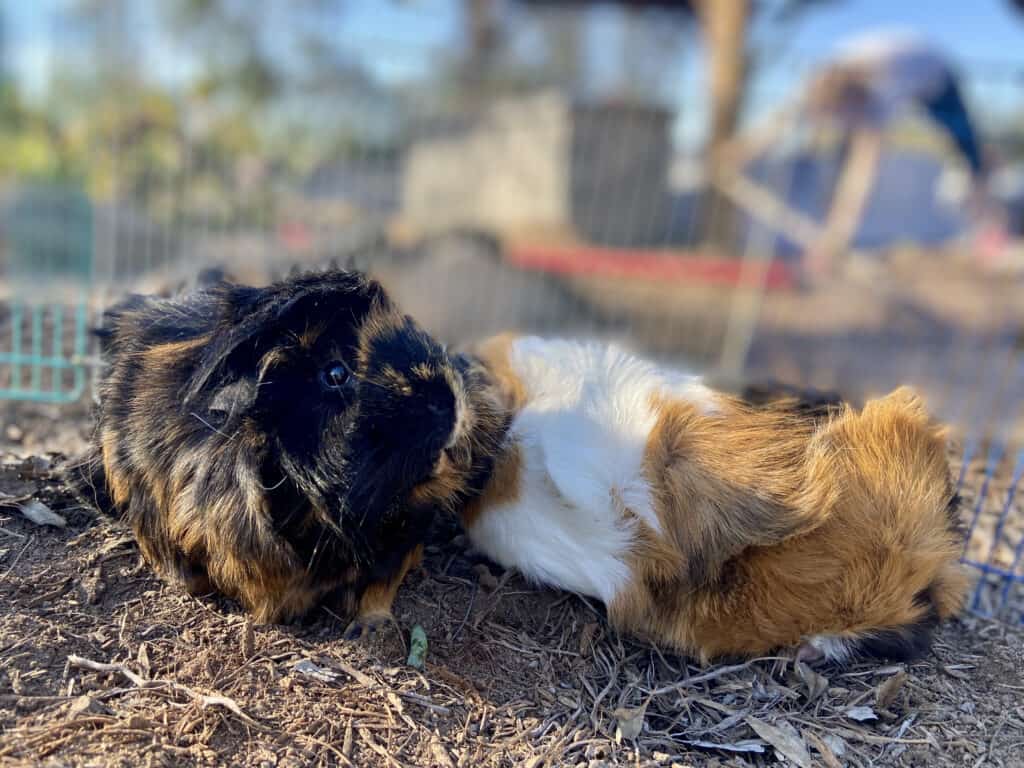As an Amazon Associate we earn from qualifying purchases.
Blackberries provide a tasty treat for humans and animals alike. These berries come packed with nutrients and antioxidants. However, are they safe to give to your guinea pig? Can guinea pigs eat blackberries?
Can Guinea Pigs Eat Blackberries?
Yes, guinea pigs can eat blackberries. Blackberries are safe for your guinea pig to eat in moderate amounts. Blackberries are a nutritious class of fruits containing vital nutrients such as vitamins A, C, K, fiber, and antioxidants. However, their high sugar composition poses a risk to guinea pigs if consumed in high amounts.

If you are feeding blackberries to your guinea pig for the first time, it is recommended that you watch it for 24 hours as a precaution. Stop feeding the guinea pig to avoid more extreme side effects if you notice dysentery or any kind of adverse symptoms. With guinea pigs and blackberries in mind, we have compiled information on the benefits and risks associated with feeding your guinea pig blackberries.
Benefits of Blackberries to Guinea Pigs
It is often recommended that you mix the grass and vegetable diet of guinea pigs with some fruits. Some of the fruits and berries that are also safe for guinea pigs consumption include:
- Apples
- Plums
- Bananas
- Melon
- Blueberries
- Cranberries
- Strawberries
Blackberries are a great source of nutrients for maintaining the health of your guinea pig. The berries are a natural product that radiates well-being benefits. The fruit contains the following nutrients:
Improves Bowel Movements and Cardiovascular Health
Blackberries contain 5.3 grams of dietary fiber per 100 grams. The fiber is divided into soluble and insoluble fibers. Soluble fibers help regulate your guinea pig’s blood sugar and help in reducing its LDL cholesterol levels. Such reduction in cholesterol and sugar levels in the bloodstream help in averting heart and coronary diseases such as strokes or hypertension.
Insoluble fiber, by its definition, can not be digested. Hence, the fiber adds bulk to the cavy’s stomach. The added bulk helps generate regular bowel movements, preventing constipation in your guinea pig.

Strengthens Bones and Boosts Immunity
Feeding your guinea pig blackberries ensures they gain sufficient amounts of essential vitamins. You should note that guinea pigs cannot synthesize vitamin C by themselves; hence, they can only be gotten through ingestion. Vitamin A helps in the strengthening of bones and teeth while promoting the cavy’s immunity.
Vitamin C also strengthens the guinea pig’s immunity while bolstering skin regeneration, prevention of noise-induced hearing loss, wound healing, and iron absorption. The intake of vitamin C also prevents your guinea pig from contracting scurvy. Symptoms of scurvy include internal hemorrhaging, weak joints, and gum bleeding.
Vitamin K is an anticoagulant, effectively preventing the creation of blood clots in blood vessels. This vitamin also promotes wound healing hence necessary after your guinea pig suffers an injury.
Boosts Brain Health
Antioxidants are various substances that assist in maintaining your cavy’s internal bodily equilibrium. Antioxidants achieve this function by capturing free radicals present in the bloodstream, preventing them from damaging their organs. The removal of free radicals helps in improving the brain’s health by minimizing memory loss as your guinea pig ages.
Tannins, an antioxidant present in the blackberries’ leaves, can help treat diarrhea, sore throats, and mouth ulcers. Tannins are also believed to prevent heart disease and cancer.
Risks Associated With Excess Blackberry Ingestion
Despite the benefits, feeding your guinea pig large amounts of blackberries can pose serious health concerns owing to blackberries’ high sugar content. These problems include:
Digestive Complications
Blackberries have a high concentration of sugar (4.88 grams per 100 grams). This high concentration poses a severe issue as guinea pigs do not have the capability of digesting sugar well. The inability to digest sugar introduces digestive problems such as stomach aches and diarrhea.

Diabetes
Due to the high sugar content of blackberries, your guinea pig is vulnerable to contracting diabetes. It is recommended to feed your cavy blackberries occasionally to prevent diabetes. You should feed guinea pigs blackberry servings at most twice a week.
Dental Health Issues
Another consequence of a diet with high sugar content is the development of dental problems such as cavities. As guinea pigs are incapable of cleaning their teeth, they tend to accumulate sugar between their teeth. Bacteria may then act on the sugar and multiply, thereby destroying the teeth’ enamel.
The destruction of your guinea pig’s enamel might eventually lead to starvation as they will not be able to chew their food.
Related Questions
How Do You Feed Blackberries to Guinea Pigs?
Guinea pigs can eat this delicious fruit with its skin and seeds. You should ensure the blackberry is ripe, easily identifiable by its purple color. Clean the blackberries to remove any residual chemicals such as pesticides and dirt to protect your cavy’s sensitive stomach.
How Many Blackberries Can a Guinea Pig Eat?
Considering their size, you should feed baby guinea pigs a portion of a whole blackberry. However, you can increase the intake size to two or three berries per serving. Feeding in small quantities will compensate for its small stomach.
Conclusion
Guinea pigs can eat blackberries as they are known to contain valuable nutrients necessary to sustain your guinea pig’s growth and health. However, you should feed them in moderate amounts. Their sugar content in excess amounts can induce stomach upsets in your guinea pig.